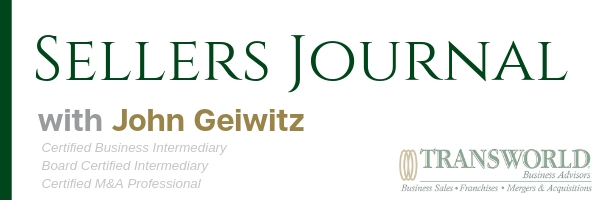Part 1: Confidentiality In Selling Your Business
The “loose lips” tagline was a common World War II phrase and was on posters everywhere. The potential problem continues on the business acquisition battlefront today. Recently, leaks of confidential information reportedly coming from some of the Directors of HP were in the news everywhere. This is an ongoing story. If it can happen to HP, it can happen to anyone. Leaks of confidential data are a serious issue at any time but are especially serious if they involve the sale of a company.
Confidentiality is a Catch—22 situation. On one side, the seller wants to keep their information confidential. On the other side, the seller wants to get the highest price possible, which can mean exposing the business to numerous potential buyers. The more potential buyers contacted, the better the chance of the highest price being obtained—and the greater chance of a leak.
Some sellers may be overly concerned about leaks of confidential data. But since confidentiality concern is a reality, I am investing the next three Sellers Journals articles helping you sort out this issue.
Here is a breakdown of the articles in this three-part series:
- (this article): Timing
- Managing uncertainty
- Disclosing correctly
In this first article, we will discuss timing. The second article will involve managing uncertainty including what and when to disclose. The third article will be about the mechanics of disclosing correctly.
TIMING
I want to share a thought about Timing because Time is Everything. Time is the “Killer of All Deals.” It is important to keep in mind that the shorter the timetable between going to market and a sale, the less chance there is for a leak. The selling process should not drag on!
This is one reason why the primary negotiation points, the price, terms and deal structure should be as fair as possible from the very beginning. The longer negotiations take, the greater the chance for word to leak out. If all the red flags are dealt with early on, the quicker we get to a successful closing. So, if there is a leak, the deal can be concluded before any damage can be done. The only other alternative is to entertain a smaller subset of potential buyers. This, of course, lessens the chance of getting the highest price and in the shortest period of time.
- Sellers should make sure that all documents involving a sale or potential sale are kept under lock and key, marked “Confidential.”
- Documents should only be transmitted to buyers in a secure manner, and only through your certified business intermediary (CBI).
- Confidential information should only be shared utilizing encrypted and password protected methods and only when one is absolutely sure it can’t get into the wrong hands.
- Buyers must be educated to understand the seriousness of the consequences of breaching the non-disclosure agreement “NDA” can bring.
- Sellers need to be conscious about the confidentiality issue as well. The seller is often the source of the breach of confidentiality. The seller tells his/her golfing partner, mentions it to a neighbor at a cocktail party, reveals it to a relative – indeed, it is usually a case of “loose lips sinking ships.”
If there was ever a reason to use a professional and certified business intermediary, this is it. A good intermediary is a conduit between the buyer, seller, lenders and the outside advisors. Business intermediaries are experienced in preventing breaches of confidentiality and take such measures as requiring buyers to sign strict non-disclosure agreements and utilizing other culling methodologies to determine if the potential buyer is even qualified to be disclosed.
Knowing What To Disclose and When
Since timing is everything, it is very important to understand the various aspects of confidentiality when it comes to selling your business. This can involve understanding what to disclose and when, and the legal obligations that need to be met by business sellers along the way.
Knowing what to disclose and when can have a significant impact on the sale of your business, so hiring an experienced business intermediary who can advise on such matters is an important step. From a buyer’s perspective, they want to know as much as possible about the operations and performance of the business so that they can make an informed decision when contemplating an offer.
Account details such as cash flow and existing contracts may be requested. Because of the sensitive nature of some of this information, particularly when it comes to existing relationships and contracts with suppliers and customers, business sellers should be reluctant to reveal more information than is absolutely necessary.
Should the suppliers, employees and customers inadvertently learn that the business is for sale, or even that you are considering your exit strategy, this can have a detrimental effect on the operation and enterprise value of the business. I have even seen the mishandling of the confidentiality process destroy businesses.
Read Part 2: Managing Uncertainty and Part 3: Disclosing Correctly of this article, or to strategize your exit from your own business, please call 904-647-4755.




